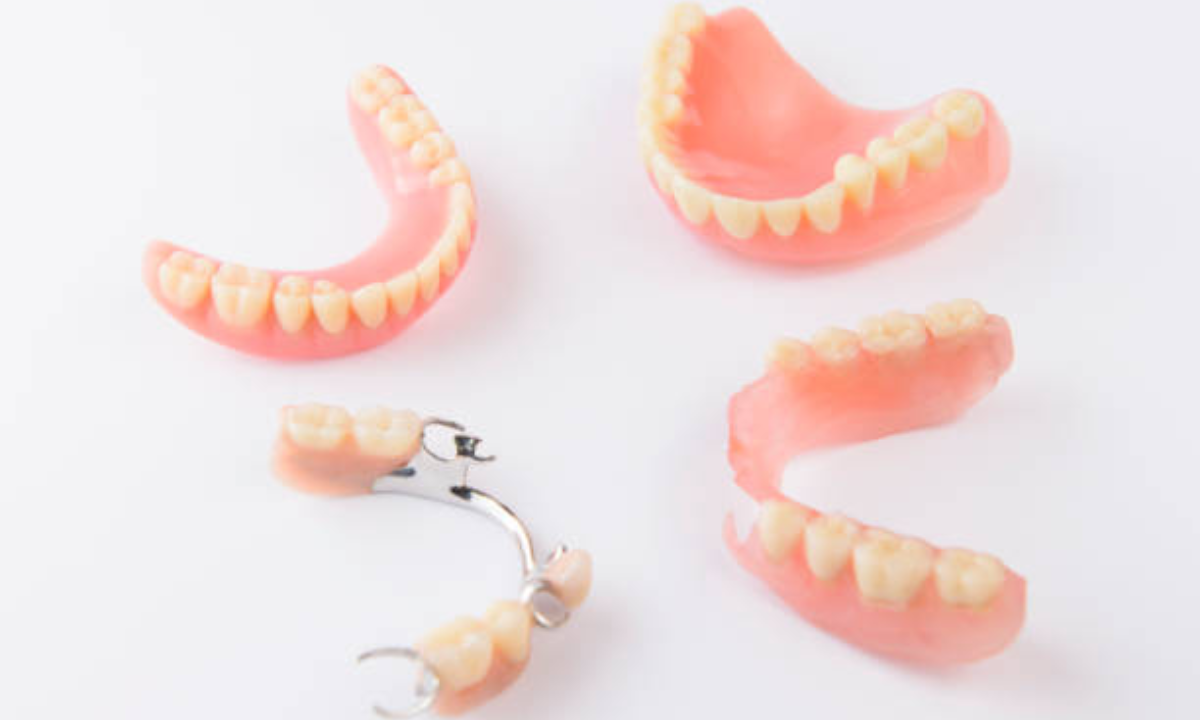Dentures and dental implants are two of the most common alternatives used to replace missing teeth. Both restorations ensure functionality and aesthetic appeal, though they are worlds apart in structure, cost, maintenance, and durability. Ultimately, the selection of one depends on a couple of factors including budget, oral health, and personal preference.
Advanced dental clinics in Whitefield have made it easy for people who live in Whitefield to get the best quality dentures in Whitefield and dental implants in Whitefield. However, before you make that decision, know the key differences between the two. This blog compares dentures and implants and helps you choose the best dental option.
What are Dental Implants?
Dental implants are permanent solutions for replacing a tooth, wherein a titanium post is surgically inserted into the jawbone and acts as an artificial root. It is then capped with a crown that works in the same way and has the same appearance as a natural tooth.
Types of Dental Implants
- Endosteal Implants: These are placed directly in the jawbone and usually are the most common.
- Subperiosteal Implants: These are placed under the gum but above the jawbone for patients who have inadequate bone structure to support other implants.
- All-on-4 Implants: One can have a whole arch of the teeth replaced by just four implants by using a full-arch implant-supported denture.
Benefits of Dental Implants
- Permanent: If taken care of, they will last for a lifetime and will never be removed.
- Stability: No slippage or movement; it feels like growing naturally.
- Prevention of Loss of Bone: The jawbone is stimulated to remain in place.
- Ideal Function: Proper mastication, communication, and comfort
- Aesthetically Appealing: Mimics natural teeth in appearance and feel
Disadvantages of Dental Implants
- Expensive: More expensive than dentures at the initial stages.
- Surgical procedure: It is a surgical procedure, which may not be for everybody.
- Longer period of recovery: The time taken for bonding of the implant with the jawbone is longer, around several months.
- Not appropriate for everyone: Patients who have extreme bone loss need to have bone grafting done before receiving implants.
What Are Dentures?
Dentures are prosthetic devices designed as a substitute for missing teeth in the mouth. They are removable and may be produced as an acrylic, metal, or porcelain material, either partial or full.
Types of Dentures
- Complete Dentures: Dentures are generally used for all patients who may have lost both their maxillary and mandibular arch with no remaining sound natural teeth that could support conventional prostheses.
- Partial Dentures: It is used for patients who have lost some of their natural teeth but have some left healthy natural teeth.
- Immediate Dentures: A temporary set is supplied immediately after the extraction of teeth before the permanent set is prepared.
- Overdentures: These have a fit over some remaining natural teeth or dental implants for stability.
Benefits of Dentures
- Flexibility: Dentures are much cheaper as compared to dental implants.
- Non-Surgical: It does not require any surgical procedure; thus, it is best suited for individuals whose jaw is weak.
- Rapid Solution: One requires much less time to get dentures as compared to getting an implant.
- Restores Function: Enable chewing and speaking but not as perfectly as implants.
Disadvantages of Dentures
- Less Stability: Dentures slide or shift in place when eating or talking.
- Requires Adhesives: The majority of the users must apply adhesives for stabilization.
- Bone Loss: The natural denture does not stimulate the jaw bone, thus degeneration through usage over several years
- Maintenance: It needs to be cared for every day and also wears out after some time.
Comparison of Dentures and Dental Implants
1. Comfort and Support
Dental implants are more comfortable and supported than dentures. Since the implants bond with the jawbone, they feel and act just like natural teeth. Dentures shift and sometimes have to be fixed using adhesives to fit them right.
2. Strength and Longevity
Implants are meant to last forever. Dentures are usually replaced every 5 to 10 years because of wear and tear on the jawbone structure.
3. Bone Preservation
One of the major benefits of dental implants in Whitefield is that they do not cause bone loss. The implants stimulate the bone as they bond with the jawbone. The dentures, on the other hand, do not stimulate the bone, and with time, the bone gradually begins to decay.
4. Aesthetics
Dental implants are almost like natural teeth. Therefore, they are also aesthetically better. Dentures sometimes appear artificial and may lose their shape as well.
5. Functionality
The users can consume all kinds of foods without any type of restriction because implants provide better functionality. Dentures, especially the lower denture, shift while eating, and it is hard to chew some foods.
6. Maintenance and Hygiene
Dentures: Should be taken out daily, cleaned, and soaked overnight.
Implants: They can be treated like a normal tooth using daily brushing and flossing.
7. Cost Factors
Dentures: Less costly in the short term but require more frequent re-alignment and or replacement
Implants: Costlier to have initially but with long-term benefits and practically very low-cost maintenance.
Who Should Opt for Dentures?
- Dentures are ideal for those on a budget to get their missing teeth replaced.
- Patients whose bone in the jaws is too poor or not substantial enough to undertake the surgery.
- Older patients or those who prefer not to undergo surgery.
- Those require a temporary solution until implant placement.
Who Should Choose Dental Implants?
- Implants are perfect for those who want a permanent, long-term solution.
- The people who wish to have natural-looking teeth with better functionality.
- The patients who have good overall oral health and jawbone density.
- Younger patients, who don’t want to lose their bones and have to keep changing their dentures many times.
Conclusion
Dentures and dental implants both satisfy the basic requirement of replacing lost teeth. Both cater to a different set of needs and requirements. Though dentures in Whitefield can provide a quicker, cost-effective answer, Whitefield dental implants do provide a much more permanent as well as close-to-nature solution.
If you want something affordable and easy to use, then dentures are the way to go. However, if you want a long-term, durable solution that preserves your jawbone and provides superior functionality, then dental implants would be the best option.
An expert dentist at a dental clinic in Whitefield will be able to advise you on a proper selection of the procedure in light of your oral health, budget, and personal preferences. Whether it is a denture or implants, restoration of your smile would bring an improved confidence level and overall quality of life.



